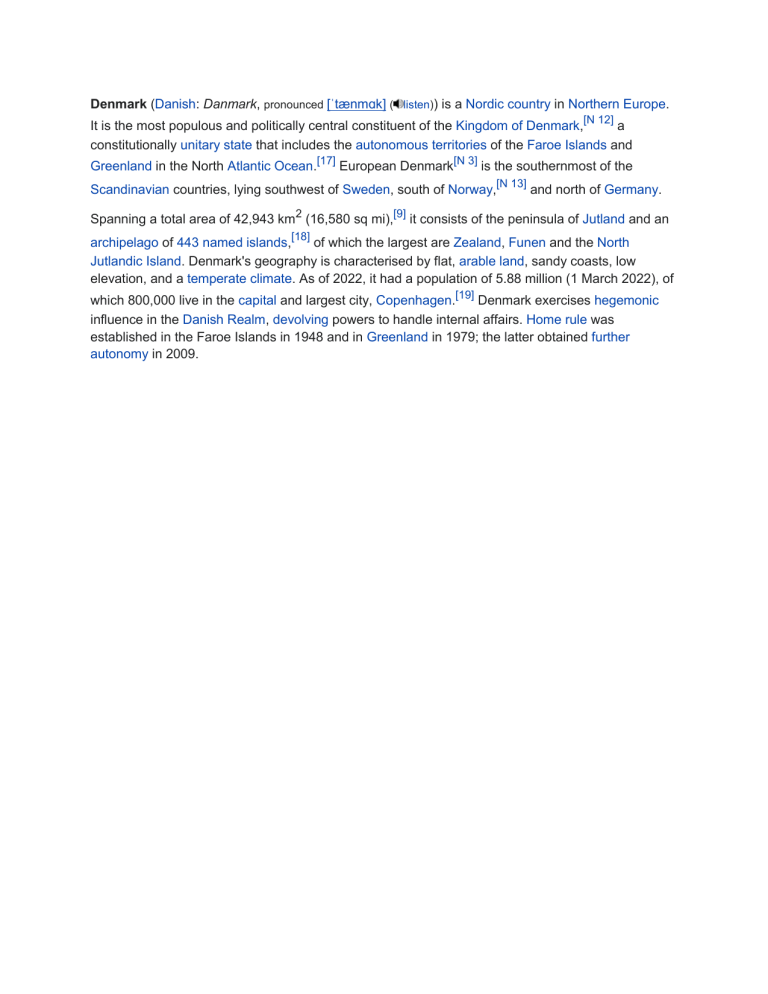
Denmark (Danish: Danmark, pronounced [ˈtænmɑk] ( listen)) is a Nordic country in Northern Europe. It is the most populous and politically central constituent of the Kingdom of Denmark,[N 12] a constitutionally unitary state that includes the autonomous territories of the Faroe Islands and Greenland in the North Atlantic Ocean.[17] European Denmark[N 3] is the southernmost of the Scandinavian countries, lying southwest of Sweden, south of Norway,[N 13] and north of Germany. Spanning a total area of 42,943 km2 (16,580 sq mi),[9] it consists of the peninsula of Jutland and an archipelago of 443 named islands,[18] of which the largest are Zealand, Funen and the North Jutlandic Island. Denmark's geography is characterised by flat, arable land, sandy coasts, low elevation, and a temperate climate. As of 2022, it had a population of 5.88 million (1 March 2022), of which 800,000 live in the capital and largest city, Copenhagen.[19] Denmark exercises hegemonic influence in the Danish Realm, devolving powers to handle internal affairs. Home rule was established in the Faroe Islands in 1948 and in Greenland in 1979; the latter obtained further autonomy in 2009.


